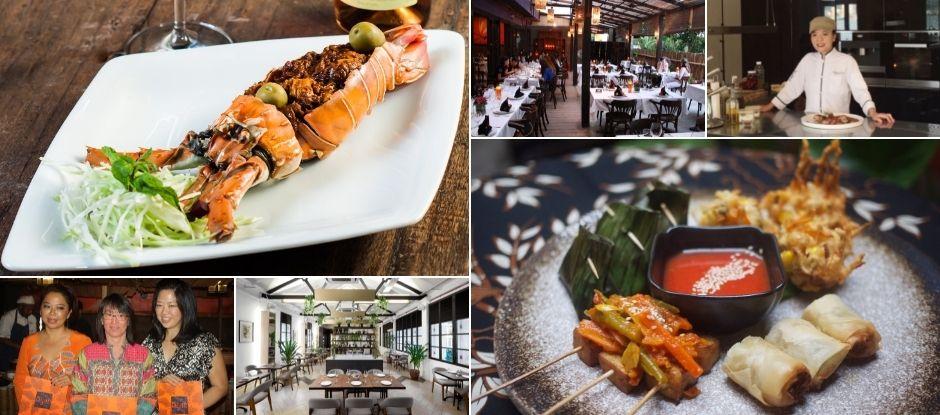In a continent where gastronomic traditions go back millennia, a handful of unique restaurants stand out for their commitment to preserving – and sometimes refreshing – their region’s rich food heritage. Many of these were honoured in Essence of Asia, a collection of local hero establishments presented in association with S.Pellegrino & Acqua Panna as part of the Asia’s 50 Best Restaurants 2021 programme. Take a closer look at how seven female-led restaurants from the collection are living and breathing this ethos across the continent
1. Yin Yang Coastal, Hong Kong, China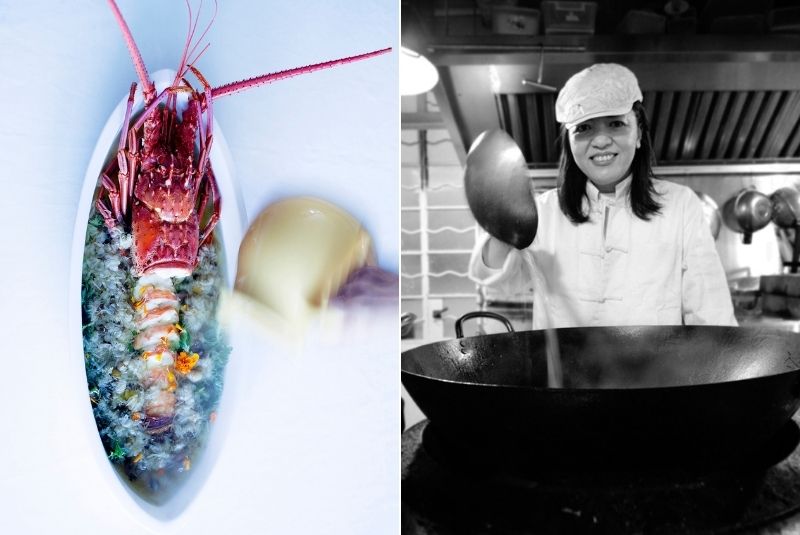
Designer-turned-chef Margaret Xu opened the first iteration of Yin Yang in a small listed building in Wanchai in 2008. An early proponent of farm-to-table cooking, she brought the restaurant to near-instant fame thanks to her original recipes focused on local, organic ingredients grown in Hong Kong’s New Territories. In 2015, she relocated the venue to a house on Ting Kau’s beach, joined forces with sous chef Chi Ho, and started focusing on Hong Kong’s disappearing fishing village cuisine – and thus, the restaurant was reborn as Yin Yang Coastal. Two of her signature dishes at the Hong Kong institution, the roast suckling pig and yellow earth chicken, are cooked in terracotta urns that Xu designed herself.
2. Mum’s Kitchen, Goa, India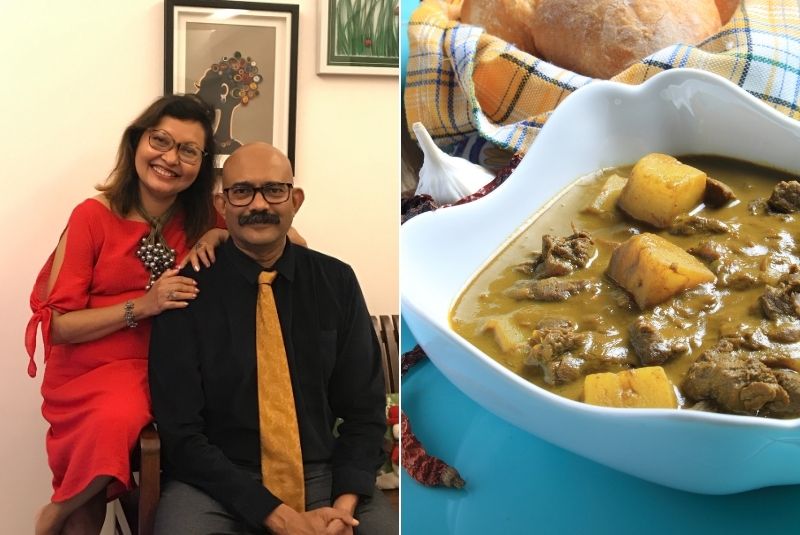
As it approaches its 25th anniversary, Mum’s Kitchen remains as relevant as the day when Maria Suzette and Rony Floriano first opened it – 12th March, 1997. Having witnessed how Goan cuisine progressively lost prestige and popularity when local restaurants turned to cater to Western travellers, the couple took it upon themselves to recover the region’s culinary traditions and originality.
They started by hiring local Goan mothers – the only ones, according to them, who had the keys to saving a culture that had been handed down through the generations. All the recipes for Mum’s Kitchen came from these local women, including as many as 15 different seafood curries original to Goa, tribal dishes, and the secrets behind a perfect kingfish peri-peri, crab masala and lobster meat recheiado. In 2017, it opened India’s very first restaurant breastfeeding lounge, and it continues to empower local female farmers and spice growers.
3. Natsukashiya, Amami Ōshima, Japan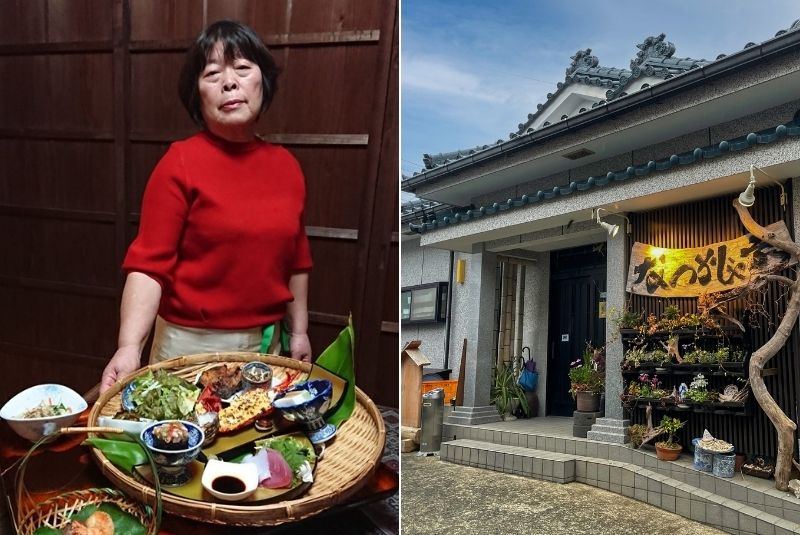
Meaning ‘home of nostalgia’, Natsukashiya was created by the entrepreneurial Egami Isako after retiring from a career as a schoolteacher. With the younger generations leaving Amami Ōshima island to find work and education in Japan’s metropolises, she noticed that the scene was missing a place where islanders could return to and find the flavours of their childhood – so she took it upon herself to rectify this. Natsukashiya serves traditional Amami Ōshima food, with all ingredients sourced from the island itself, which is located some way south-west of mainland Japan. Even the restaurant looks like a private home, with small dining rooms for each party. Big portions of local dishes are served on woven bamboo baskets called sambara at this essential Amami Ōshima address.
4. Doi Ka Noi, Vientiane, Laos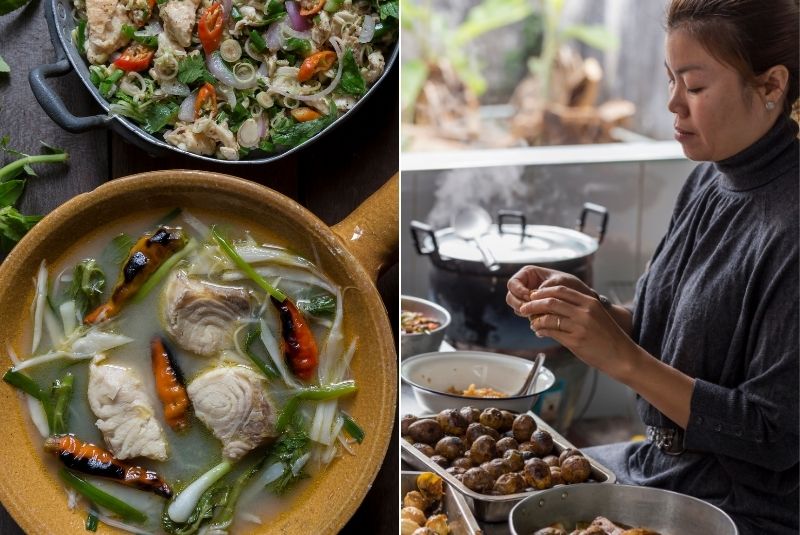
Doi Ka Noi’s chef-owner Ponpailin ‘Noi’ Kaewduangdy grew up in rural Laos in an off-grid subsistence farming community with no road access, where recipes were passed down orally and all food was grown, foraged or caught. She opened Doi Ka Noi in October 2015 to showcase Lao food’s regional diversity and moved to larger premises a year later, expanding her operation to include dinner service.
Kaewduangdy goes out of her way to source and forage traditional Lao ingredients that can seldom be found in any other restaurant – from vegetable fern tops to wild ginger flowers and termite mushrooms. Doi Ka Noi is the only Lao member of the Slow Food Movement and the restaurant prides itself on making all sauces and stocks from scratch, as well as growing organic vegetables and eggs in its own garden. From pork stuffed with lemongrass to Luang Prabang river weed with tomato-chilli dip, every bite at Doi Ka Noi is packed full of flavour and native culinary knowledge.
5. Bijan, Kuala Lumpur, Malaysia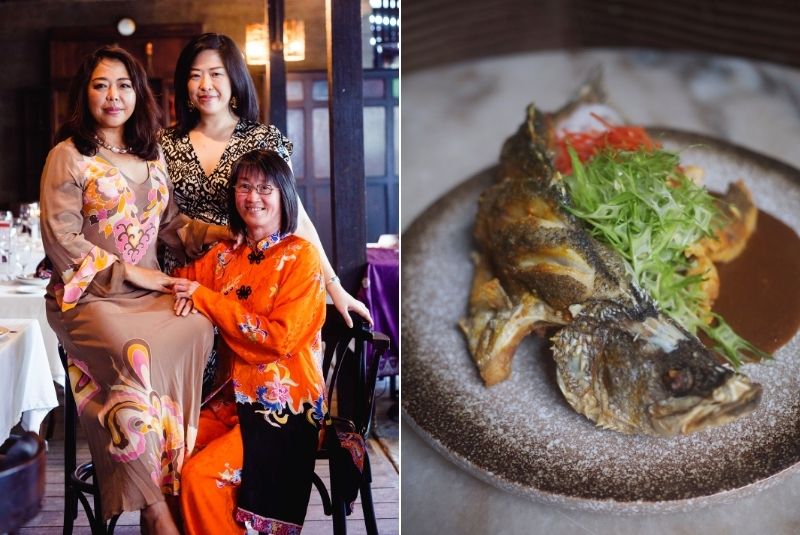
Bijan, which specialises in fine Malay cuisine with an innovative twist, was founded in 2003 by three women – Yuen Sze To, Lissa Yeoh and Way Cheng Yeoh. From deep-fried prawn fritters (cucur udang) to grilled short ribs marinated in soy sauce (rusuk panggang), the restaurant takes its inspiration from Malay street food replayed in a modern key. The ‘good food trio’, as they’re known locally, focus on sourcing the best local ingredients, from the perfect durian to the best ducks, and encourage their chefs to try innovative cooking methods, while remaining faithful to traditional Malay flavours. A restaurant at the heart of its community, Bijan ran a campaign during the pandemic to offer free meals to police officers on duty and collaborated with The Lost Food Project to donate leftover food to the homeless.
6. Botanico at The Garage, Singapore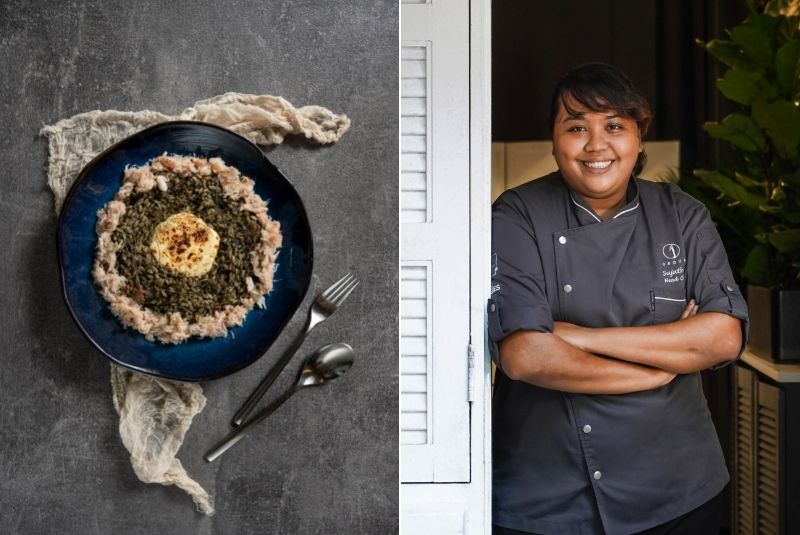
Chef Sujatha Asokan grew up in a diverse household with one Malaysian-Chinese and one Singaporean-Indian parent – and her diverse appreciation of South East Asian food shines in her dishes. In 2018, at only 27, she was entrusted to lead the kitchens at multi-concept F&B venue The Garage, with Botanico as the flagship. Located inside Singapore Botanic Gardens, the restaurant explores history and heritage through painstakingly built, layered dishes such as corn panipuri: puffed pillows of Indian-inspired puri pastry filled with spiced baby corn and a curried Japanese corn sauce. Asokan was recognised in 2019 with a Rising Chef of the Year Award by the World Gourmet Summit.
7. Café Kumbuk, Colombo, Sri Lanka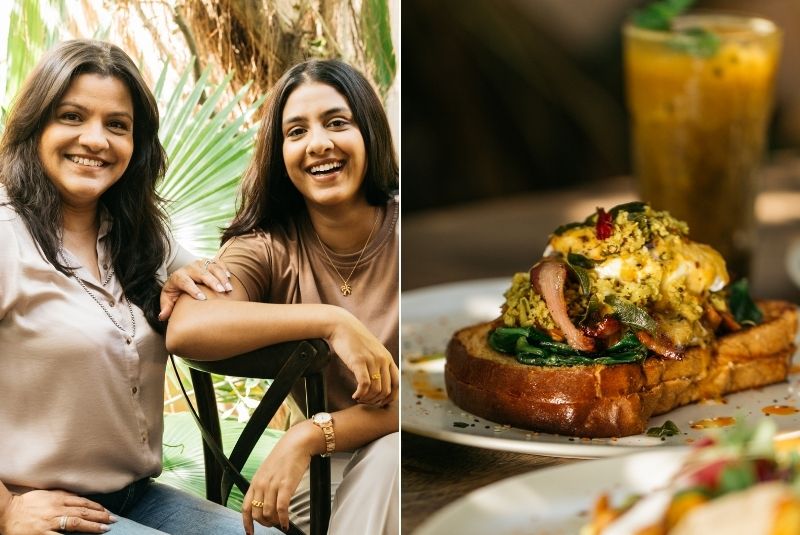
While in London studying a degree in creative advertising, Shana Dandeniya dreamed of returning to her native Sri Lanka to realise a long-held entrepreneurial dream. And, in 2015, with the help of her mother Dinali, that’s exactly what she did. Café Kumbuk, named after a Sri Lankan tree that symbolises pride and respite from the heat, focuses on using local produce and tweaking traditional recipes with health in mind. The restaurant décor is also inspired by the country’s heritage, with wooden tables, palms and succulents, and a counter made from the namesake kumbuk tree. The crispy fish tacos and lime pie (with no refined sugar, of course) are among the highlights – as is Kumbuk Pantry, a space to sell local artisans’ produce to diners.
‘50/50 is the new 50’ is a content series created by 50 Best and supported by S.Pellegrino with the shared aim of promoting equality, inclusivity and balance in the hospitality sector and beyond.
Discover the full Essence of Asia collection in the article and follow 50 Best on Instagram, Facebook, Twitter and YouTube for the latest news, features and videos.
